-
 The assassination of Archduke Franz Ferdinand on June 28, 1914, in Sarajevo, is widely considered the spark that ignited World War I. Its importance lies not only in the event itself but in the chain reaction it triggered among the great powers of Europe.
The assassination of Archduke Franz Ferdinand on June 28, 1914, in Sarajevo, is widely considered the spark that ignited World War I. Its importance lies not only in the event itself but in the chain reaction it triggered among the great powers of Europe. -
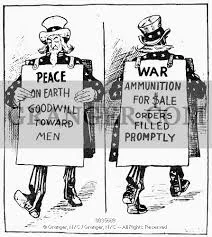 The importance of American neutrality in World War I (1914–1917) lies in how it shaped both the early course of the war and the United States’ eventual role as a world power.
The importance of American neutrality in World War I (1914–1917) lies in how it shaped both the early course of the war and the United States’ eventual role as a world power. -
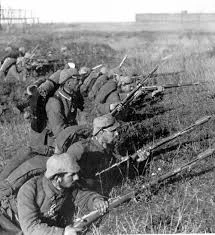 The Battle of the Marne (September 6–12, 1914) was one of the most important battles of World War I, because it stopped Germany’s advance into France and set the stage for trench warfare that would dominate the Western Front for the next four years.
The Battle of the Marne (September 6–12, 1914) was one of the most important battles of World War I, because it stopped Germany’s advance into France and set the stage for trench warfare that would dominate the Western Front for the next four years. -
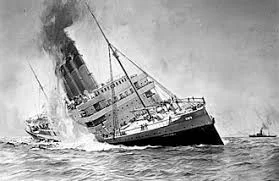 The sinking of the Lusitania on May 7, 1915, was one of the most significant events leading up to the United States’ entry into World War I, and it had major political and emotional effects worldwide.
The sinking of the Lusitania on May 7, 1915, was one of the most significant events leading up to the United States’ entry into World War I, and it had major political and emotional effects worldwide. -
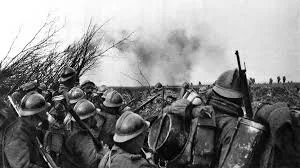 The Battle of Verdun (February–December 1916) was one of the longest and bloodiest battles of World War I, and it became a powerful symbol of French determination and national pride.
The Battle of Verdun (February–December 1916) was one of the longest and bloodiest battles of World War I, and it became a powerful symbol of French determination and national pride. -
 The Sussex Incident (March 1916) was an important event in World War I because it brought the United States and Germany closer to conflict and further tested America’s policy of neutrality.
The Sussex Incident (March 1916) was an important event in World War I because it brought the United States and Germany closer to conflict and further tested America’s policy of neutrality. -
 The Battle of the Somme (July–November 1916) was one of the largest and bloodiest battles of World War I, and it had major military and symbolic importance for both the Allies and Germany.
The Battle of the Somme (July–November 1916) was one of the largest and bloodiest battles of World War I, and it had major military and symbolic importance for both the Allies and Germany. -
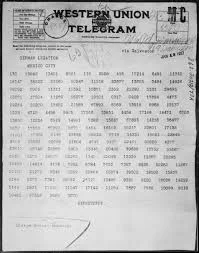 The Zimmermann Telegram (January 1917) was one of the most important events that led the United States to enter World War I. It revealed Germany’s attempt to form an alliance against the U.S. and turned American public opinion strongly toward war.
The Zimmermann Telegram (January 1917) was one of the most important events that led the United States to enter World War I. It revealed Germany’s attempt to form an alliance against the U.S. and turned American public opinion strongly toward war. -
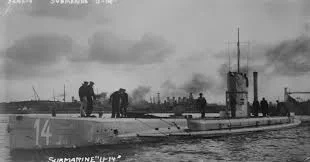 The unrestricted submarine warfare policy by Germany was one of the most important factors that brought the United States into World War I and changed the course of the conflict.
The unrestricted submarine warfare policy by Germany was one of the most important factors that brought the United States into World War I and changed the course of the conflict. -
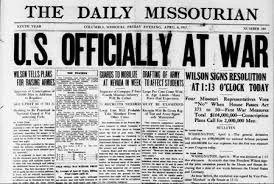 The United States’ entry into World War I in April 1917 was a turning point in the conflict and had a major impact on both the war’s outcome and the world’s future.
The United States’ entry into World War I in April 1917 was a turning point in the conflict and had a major impact on both the war’s outcome and the world’s future. -
 The Selective Service Act (1917) was important because it allowed the United States to rapidly build a large military to fight in World War I and had long-term effects on U.S. military policy.
The Selective Service Act (1917) was important because it allowed the United States to rapidly build a large military to fight in World War I and had long-term effects on U.S. military policy. -
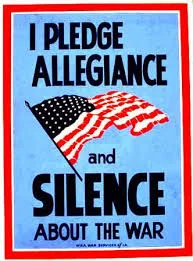 The Espionage Act (1917) was important because it gave the U.S. government the power to suppress dissent and protect national security during World War I, but it also raised lasting questions about freedom of speech.
The Espionage Act (1917) was important because it gave the U.S. government the power to suppress dissent and protect national security during World War I, but it also raised lasting questions about freedom of speech. -
 The American Expeditionary Force (AEF), sent to France in 1917–1918 during World War I, was important because it strengthened the Allied forces and helped turn the tide of the war.
The American Expeditionary Force (AEF), sent to France in 1917–1918 during World War I, was important because it strengthened the Allied forces and helped turn the tide of the war. -
 The Fourteen Points, proposed by President Woodrow Wilson in January 1918, were important because they outlined a plan for a just and lasting peace after World War I and influenced international relations.
The Fourteen Points, proposed by President Woodrow Wilson in January 1918, were important because they outlined a plan for a just and lasting peace after World War I and influenced international relations. -
 The Spanish Flu epidemic of 1918–1919 was important because it caused a global health crisis that killed millions and affected societies, economies, and the outcome of World War I.
The Spanish Flu epidemic of 1918–1919 was important because it caused a global health crisis that killed millions and affected societies, economies, and the outcome of World War I. -
 Russia’s withdrawal from World War I in 1917–1918 was important because it changed the dynamics on the Eastern and Western Fronts and had major political consequences both for Russia and the Allies.
Russia’s withdrawal from World War I in 1917–1918 was important because it changed the dynamics on the Eastern and Western Fronts and had major political consequences both for Russia and the Allies. -
 The Sedition Act of 1918 was important because it restricted freedom of speech in the United States during World War I and showed how the government prioritized national security over civil liberties in wartime
The Sedition Act of 1918 was important because it restricted freedom of speech in the United States during World War I and showed how the government prioritized national security over civil liberties in wartime -
 The Battle of Argonne Forest (September–November 1918) was one of the largest and most important battles involving the American Expeditionary Force (AEF) in World War I.
The Battle of Argonne Forest (September–November 1918) was one of the largest and most important battles involving the American Expeditionary Force (AEF) in World War I. -
 Armistice Day, November 11, 1918, was important because it marked the official end of World War I fighting and symbolized a turning point in world history.
Armistice Day, November 11, 1918, was important because it marked the official end of World War I fighting and symbolized a turning point in world history. -
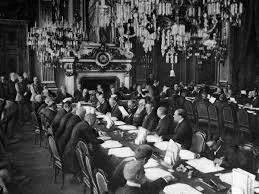 The Paris Peace Conference (1919) and the Treaty of Versailles were important because they officially ended World War I and reshaped the political map of Europe, while also setting the stage for future international conflicts.
The Paris Peace Conference (1919) and the Treaty of Versailles were important because they officially ended World War I and reshaped the political map of Europe, while also setting the stage for future international conflicts.
